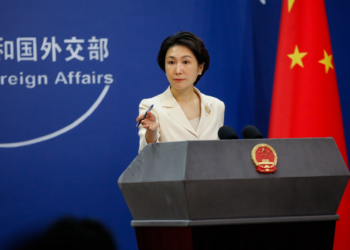The inaugural group of 300 young agricultural professionals selected for Pakistan’s government-sponsored training program in China arrived in Xi’an, Shaanxi province, this week. These participants will undertake a three-month intensive course at Northwest Agriculture and Forestry University (NWAFU) and Yangling Vocational and Technical College, renowned institutions specializing in agricultural innovation, climate-resilient farming, and advanced agro-technology.
Bilal Mahmood Chaudhary, Deputy Head of Mission at the Pakistani Embassy in Beijing, joined senior Chinese officials to welcome the trainees at Xi’an International Airport. During an orientation session, attendees received an overview of the China-Pakistan All-Weather Strategic Cooperative Partnership, the structure of their training curriculum, and ongoing bilateral efforts to enhance agricultural collaboration. Chaudhary emphasized the program’s role in fostering “knowledge exchange critical for addressing Pakistan’s agricultural challenges.”
Titled the *Prime Minister’s Initiative for Capacity Building of 1,000 Agricultural Graduates in China*, the program aims to equip participants with expertise in biotechnology, sustainable practices, farm mechanization, precision agriculture, artificial intelligence, and high-efficiency irrigation systems. A statement from Pakistan’s Ministry of National Food Security highlighted that trainees will work with leading Chinese universities and research institutes, focusing on nine priority areas to modernize Pakistan’s agrarian economy.
Prime Minister Shehbaz Sharif and Federal Minister for National Food Security Rana Tanveer Hussain are set to preside over a send-off ceremony on April 15 for subsequent batches. The government-funded initiative, spanning three to six months, selected candidates through a merit-based process aligned with their academic backgrounds.
Upon completion, graduates will return as “master trainers” tasked with disseminating cutting-edge techniques to local farmers, academic institutions, and research centers. Officials confirmed plans to send 1,000 agricultural graduates to China by 2025, underscoring Islamabad’s commitment to leveraging technology and sustainable practices to bolster food security and economic resilience. Rana Tanveer Hussain remarked, “This initiative is a cornerstone in our strategy to transform agriculture into a tech-driven sector capable of meeting future demands.”
















